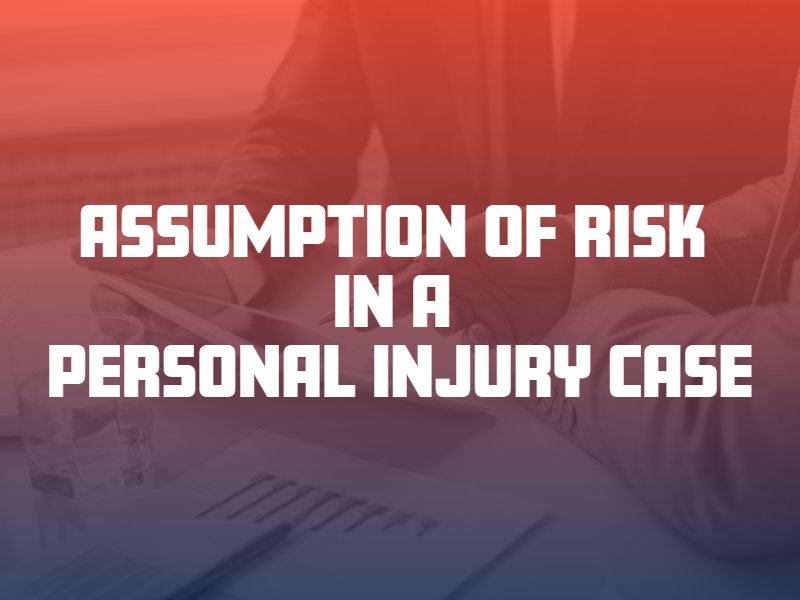Most personal injury accidents are entirely unpredictable. They happen unexpectedly in the middle of a normal day, such as in the car on the way to work or at the grocery store. Others, however, occur during activities the injured participants knew were dangerous, such as bungee jumping or cliff diving. If you have one of these cases, the party allegedly liable for your injuries will most likely employ the assumption of risk defense.

What Is Assumption of Risk?
Assumption of risk is a defense tactic available for use by defendants in personal injury cases in New Mexico. The assumption of risk defense states that you, the plaintiff, knew of the risks involved in a certain activity – including the risk of personal injuries – and voluntarily agreed to engage in the activity anyway. Thus, the defendant can argue that he or she is not liable for your injuries since you assumed the risks of the activity. If the defendant succeeds with the assumption of risk defense, you might not be eligible for financial compensation.
How Can Assumption of Risk Affect Your Claim?
The assumption of risk defense could affect your New Mexico personal injury case by poking holes in your claim against the defendant. Most personal injury cases center on the claim that the defendant was negligent, and this is what caused the plaintiff’s injuries or losses. In an assumption of risk case, however, the negligence argument may not stand if the courts believe you were equally responsible for your injuries by knowingly engaging in a dangerous activity. Even if the defendant was negligent, you may be ineligible for compensation due to your agreement to accept the known risks involved with the activity.
A successful assumption of risk defense could make you entirely ineligible for financial recovery from a defendant. It may be possible, however, to still recover partial compensation by refuting the assumption of risk defense. If you or your personal injury attorney can show, using evidence, that the defendant was at least somewhat responsible for your injuries, the defendant may still owe you a percentage of compensation. New Mexico uses a pure comparative negligence rule, meaning you could be 99% at fault for your injuries and still recover 1% of a compensatory award.
Arguing against an assumption of risk defense can be critical to recovering maximum compensation for your losses. One argument you may be able to use is that the defendant negligently failed to obtain your informed consent for the dangerous activity. If the defendant did not properly warn you of known risks, you may have been unable to assume all of the risks associated with the activity, even if you signed paperwork. In this situation, the assumption of risk defense might not stand up in court.
What If You Signed a Liability Waiver?
Another question is if the defendant has a written contract with your signature showing that you accepted the potential risks of an activity. Most activities that contain possible risks, such as hot air balloon rides and field trips, come with liability waivers that participants or their parents must sign. If you signed a liability waiver, this could hurt your chances of holding someone responsible for your injuries.
A liability waiver states that you agree to give up your right to hold the defendant responsible if the activity injures you. Liability waivers are not foolproof, however. A liability waiver may not bar you from financial recovery if the defendant was grossly negligent or intended to cause you harm. You may need an attorney’s assistance in Albuquerque to help you with a case involving assumption of risk or liability waivers.
When to Contact an Attorney
A personal injury lawyer will have experience navigating the assumption of risk defense. Even if you signed a written contract, your lawyer can check to see if it is legally binding and if its terms apply to your particular accident. A lawyer may be able to help you obtain financial compensation for your injuries and losses connected to a dangerous activity despite the assumption of risk defense.




